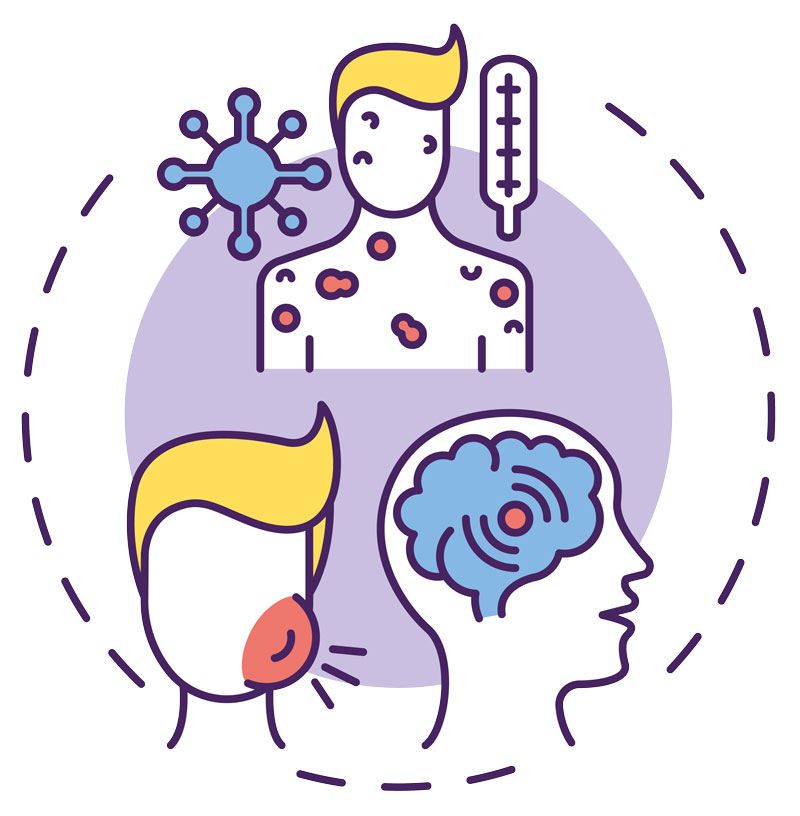Meningitis
How is it spread?
- sneezing
- coughing
- kissing
- sharing utensils, cutlery and toothbrushes
Symptoms
- a high temperature (fever) of 38C or above
- being sick
- a headache
- a rash that does not fade when a glass is rolled over it (but a rash will not always develop)
- a stiff neck
- a dislike of bright lights
- drowsiness or unresponsiveness
- seizures (fits)
Complications
- hearing loss, which may be partial or total
- recurrent seizures (epilepsy)
- problems with memory and concentration
- co-ordination, movement and balance problems
- learning difficulties and behavioural problems
- partial or total loss of vision
- loss of limbs – amputation may be necessary to stop the infection spreading through the body and remove damaged tissue
- bone and joint problems
- kidney problems
Treatment
- intravenous antibiotics and fluids
- administration of oxygen
- cochlear implants to improve hearing in cases of severe hearing loss
- prosthetic limbs and rehabilitation support may help if it was necessary to amputate any limbs
- counselling and psychological support if the trauma of having meningitis causes problems such as disturbed sleep, bedwetting etc.
For more information click here.
Vaccinations against meningitis
- Meningitis B vaccine
- 6-in-1 vaccine
- Pneumococcal vaccine –
- Hib/MenC vaccine – offered to babies at 1 year of age
- MMR vaccine Meningitis ACWY vaccine


